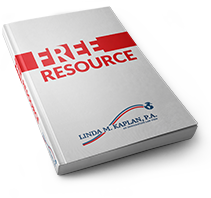
It is not difficult to find loud voices warning about the dangers of immigration to the US economy and our way of life. It is almost impossible to not hear this hate-filled and misleading rhetoric. As an immigration attorney for more years than I want to mention, I have seen the opposite – hard working honest people who fill jobs that citizens cannot do or do not want to do and immigrants who create businesses that generate jobs for US citizens. The immigrants may become legal residents by virtue of a petition filed by a close family member or an employer that desperately needs their skills and expertise.
The American Immigration Council (AIC) is a non-profit that works to strengthen America by shaping how America thinks about and acts towards immigrants and immigration. AIC publishes “Immigration Impact” which is the only news site exclusively committed to covering immigration issues. Immigration Impact was launched in 2008 to help shape and develop a rational conversation on immigration that shifts the terms of the debate towards achieving workable and effective comprehensive policy reform.
Immigration Impact posted an article a few days ago discussing how declining levels of immigration have aggravated our labor shortages. This article talks about the declines in immigration to the US since 2016 with the biggest declines occurring since the arrival of COVID in early 2020.
This article points out that falling levels of immigration are not the sole cause of labor shortages. We have declining birth rates and rising mortality rates in a rapidly aging US population. Economists at the University of California, Davis have estimated that there would be around two million more working-age adults living in the US if pre-2020 levels of immigration had continued.
Immigration Impact points out that the shortfall of immigrant workers is leaving both high-skilled and low-wage jobs unfilled. They state that the highest rate of unfilled jobs is in the hospitality and food service industries. While these are jobs that require little education or training, it was also estimated that about 950,000 college-educated workers have been kept out of the US.
The lost educated workers are most likely to work in STEM (science, technology, engineering, and math) fields. It is estimated that every STEM job creates 2.5 additional jobs by generating additional demand for goods and services. Doing the math – the loss of one million college-educated immigrant workers results in 2.5 million fewer jobs in the US economy. This number does not reflect the estimated 200,000 jobs created by immigrant business owners.
The 20% decline in the number of foreign students has negatively impacted US universities that benefit from the research and innovation of these students. It has also impacted the universities financially given that the tuition paid by international students is significantly higher than the tuition of US students. This decline in international student tuition which has in the recent past subsidized the tuition of US students has negatively impacted the finances of our colleges and universities.
Immigration Impacts mentioned that from 2020 to 2021 the US population grew by only .1 percent, the lowest rate since the founding of the country. The reasons for this almost nonexistent population growth are decreasing immigration, decreasing fertility, increasing mortality, and rising retirements. The result has been a significant shortage of workers at all skill levels.
On January 21st, Forbes published a discussion about the recent Biden plan to welcome immigrant scientists and engineers. To discuss this plan will require another blog but the changes that the article mentions reflect the view that America is losing ground to China and other countries in the battle for talent. The Biden proposals show that the US government is now attempting to join this battle and encourage talented foreign-born scientists and engineers to become part of the US economy.
We also need to work towards easing the backlog in immigration processing in general, including for family-based petitions, so that our businesses can hire the family members for positions that remain unfilled and ease the burden on our businesses that need workers of all skill levels.
- Refugees, Asylum, and other humanitarian relief. - February 9, 2024
- Florida Anti-Immigrant Legislation - May 30, 2023
- Undocumented Immigrants Pay Taxes—Even Income Taxes. - April 25, 2023


